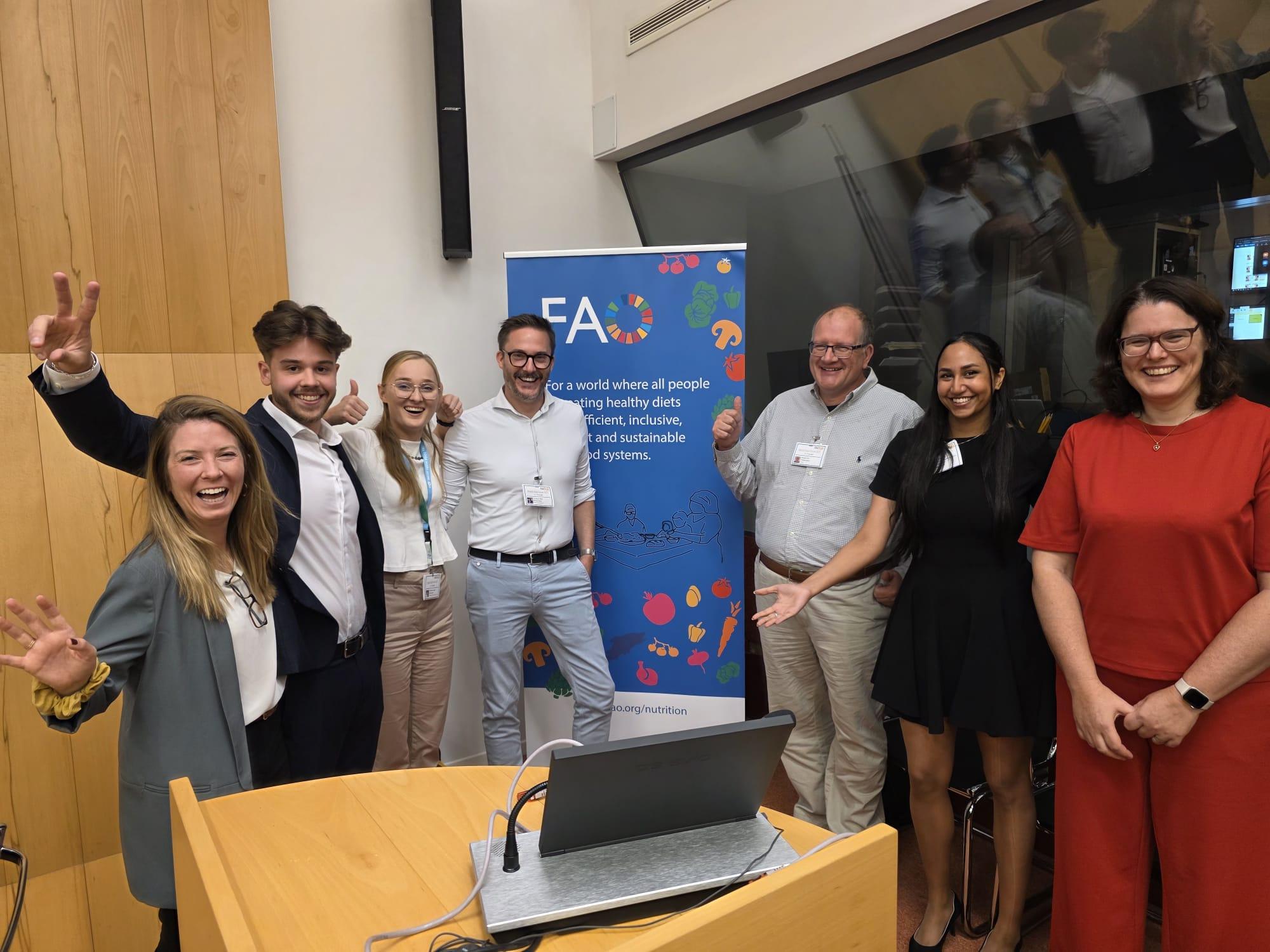When Miraal and her classmates brainstormed ideas for a university competition during the COVID-19 lockdown, they never imagined that their project would receive global recognition years later. What began as a student initiative has grown into Safi, a social enterprise with the ambition to fundamentally transform how milk is pasteurized and distributed in East Africa.
Although Miraal studied computer science and business, and her co-founder Martin Turuta studied mathematics and business, they founded Safi without a single engineer on the team. Today, 24-year-old Miraal and Martin run the company from their home base in Toronto. Their mission is simple yet bold: to ensure that every child in East Africa has access to a safe glass of milk.
In 2024, Safi gained international visibility when the company received the Startup Innovation Award at the World Food Forum. According to Miraal, the award not only put Safi in the global spotlight but also opened doors to valuable networks and new opportunities to further develop their product. As Safi now moves toward commercial production, expanding their network and strengthening their visibility has become more important than ever.
The milk crisis in East Africa
In East Africa, unsafe milk poses a silent but severe threat. Contaminated milk is associated with nearly 30% of deaths among children under five. Around 90% of all milk is sold through informal, unregulated markets. Farmers often lack the means and technology to pasteurize milk safely. Industrial pasteurization systems are too large, too expensive, and too dependent on electricity to be practical in rural areas.
The result: millions of families consume milk that may be contaminated, while farmers earn less because unpasteurized milk has a lower market value.
Safi’s solution
Safi started with one question:
How can we make milk safe without expensive equipment or loss of nutrients?
The answer took shape in a small, portable pasteurization unit that operates without electricity. The device heats milk to 72°C — the optimal temperature to eliminate harmful bacteria — while preserving almost all nutritional value.
Each unit is affordable, energy-efficient, and easy to use, designed specifically for smallholder farmers. In addition, an integrated chip collects data on milk quality, enabling governments and NGOs to improve food safety and transparency in the dairy value chain.
From prototype to practice
After success in their university competition, Safi joined an incubator program in Austria in 2023, where the team refined their prototype and developed a viable business model.
Later that year, the company tested its technology in Rwanda, where milk plays a key role in national nutrition programs such as “One Cup of Milk a Day.”
Through collaborations with ministries, NGOs, and farmers in Rwanda and Kenya, Safi validated both the technical functionality of its device and the market demand. In Kenya in particular, demand for pasteurized milk is rapidly growing, a major opportunity Safi hopes to seize as they enter the next phase: commercial production.
This new stage requires investment and collaboration with governments, NGOs, and private-sector partners to ensure that the technology becomes widely accessible to farmers.
Milk that changes lives
Safi’s mission is clear:
- Protect families and children with safe milk
- Help farmers earn higher incomes
- Support governments and NGOs in building a transparent, data-driven dairy chain
By giving farmers the ability to pasteurize their own milk, Safi not only improves food safety but also stimulates economic growth. Pasteurized milk sells at a higher price — income that farmers can reinvest in their households and communities.
From a student idea to an award-winning global startup, Safi proves that innovation, empathy, and technology together can change lives; one glass of milk at a time.
The Startup Innovation Award – Digital Innovation in Food Processing category is made possible by the Smart Solutions 4 Agri-Food Innovation Hub, with support from QING Food Automation, Cargill, HIGHFIVE, and Business Factory Food.
